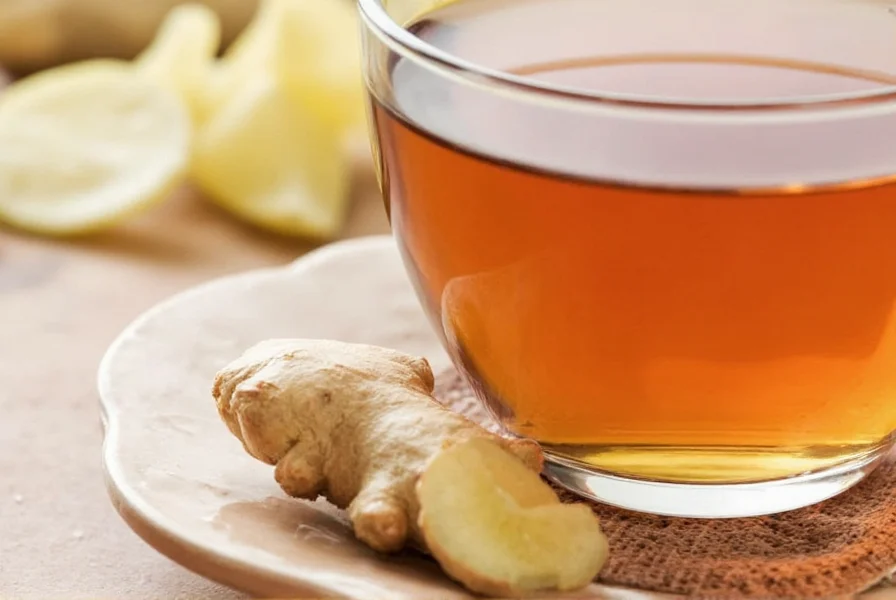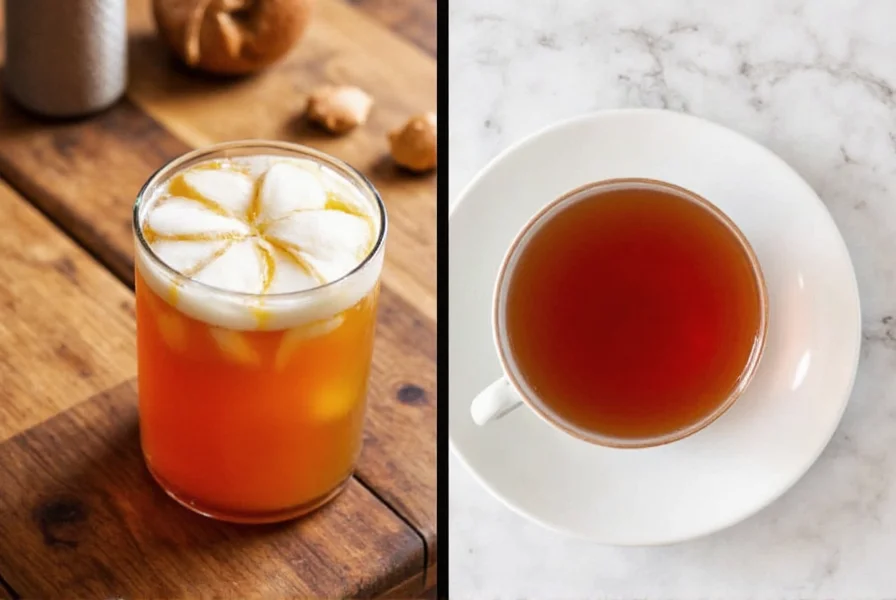Understanding the caffeine content in your daily beverages is crucial for managing energy levels, sleep quality, and overall health. Many people turn to tea as a gentler alternative to coffee, but not all teas are created equal when it comes to caffeine content. Ginger tea stands apart from traditional teas in this important aspect.
What Makes Ginger Tea Different From Traditional Teas
Ginger tea belongs to the category of herbal teas, also known as tisanes. These beverages are made from herbs, spices, flowers, or fruits rather than the leaves of the Camellia sinensis plant. This fundamental difference explains why ginger tea contains no caffeine.
Traditional teas like black, green, white, and oolong all come from the same plant species but undergo different processing methods. Each of these contains varying levels of caffeine because the Camellia sinensis plant naturally produces caffeine as a defense mechanism against pests.
| Beverage Type | Average Caffeine Content | Source Plant |
|---|---|---|
| Ginger tea | 0 mg per 8 oz | Zingiber officinale (ginger root) |
| Black tea | 40-70 mg per 8 oz | Camellia sinensis |
| Green tea | 20-45 mg per 8 oz | Camellia sinensis |
| White tea | 15-30 mg per 8 oz | Camellia sinensis |
| Coffee | 95-200 mg per 8 oz | Coffea plant |
The Science Behind Caffeine in Beverages
Caffeine is a natural alkaloid compound that functions as a pesticide in plants, protecting them from insect damage. It's primarily found in specific plant species including coffee beans, cacao pods, guarana berries, and the leaves of the Camellia sinensis plant.
Ginger root, however, belongs to the Zingiberaceae family and contains different bioactive compounds like gingerols and shogaols instead of caffeine. These compounds provide ginger's characteristic spicy flavor and many of its health benefits without any stimulating effects.

Why Caffeine Content Matters for Tea Drinkers
Knowing which teas contain caffeine is particularly important for several groups of people:
- Individuals with caffeine sensitivity who experience anxiety, rapid heartbeat, or insomnia
- Pregnant women following medical advice to limit caffeine intake
- People managing certain health conditions like anxiety disorders or heart conditions
- Night shift workers needing non-stimulating beverages during work hours
- Those practicing evening relaxation routines who want to avoid sleep disruption
Ginger tea's caffeine-free nature makes it an excellent choice for evening consumption without interfering with sleep patterns—a significant advantage over traditional teas that may contain enough caffeine to disrupt restful sleep for sensitive individuals.
Health Benefits of Caffeine-Free Ginger Tea
Beyond its lack of caffeine, ginger tea offers numerous health benefits supported by scientific research:
- Digestive support: Ginger has been shown to accelerate gastric emptying and reduce nausea
- Anti-inflammatory properties: Gingerols in ginger may help reduce inflammation markers
- Nausea relief: Particularly effective for morning sickness, motion sickness, and postoperative nausea
- Antioxidant effects: Contains compounds that combat oxidative stress
- Pain reduction: May help alleviate menstrual pain and muscle soreness
These benefits make ginger tea valuable not just as a caffeine-free alternative, but as a functional beverage with genuine health-promoting properties.
Common Misconceptions About Ginger Tea and Caffeine
Several misconceptions persist about ginger tea and caffeine:
- Misconception: All "teas" contain some caffeine
Reality: Only beverages from the Camellia sinensis plant contain caffeine; herbal infusions are technically not "tea" but tisanes - Misconception: Ginger tea provides a similar energy boost to green tea
Reality: Any energy boost from ginger comes from improved circulation and digestion, not caffeine stimulation - Misconception: Commercial ginger tea blends always remain caffeine-free
Reality: Some blends mix ginger with traditional teas, so always check ingredients

Choosing and Preparing Authentic Caffeine-Free Ginger Tea
To ensure you're drinking truly caffeine-free ginger tea:
- Look for products labeled "100% ginger" or "pure ginger tea"
- Check ingredient lists for any mention of black, green, or white tea
- Opt for organic varieties when possible to avoid pesticides
- Consider making your own from fresh ginger root for complete control
Preparing ginger tea at home is simple: slice or grate fresh ginger root, steep in boiling water for 5-15 minutes (longer for stronger flavor), and add lemon or honey to taste. The longer you steep, the more potent the flavor and potential health benefits.
Ginger Tea in Your Daily Routine
Because it's caffeine-free, ginger tea offers flexibility in your daily beverage schedule:
- Morning: A refreshing start without caffeine stimulation
- After meals: Aids digestion and reduces bloating
- Evening: Promotes relaxation without disrupting sleep
- Nighttime: Soothes throat discomfort and supports restful sleep
This versatility makes ginger tea an excellent addition to any wellness-focused lifestyle, particularly for those monitoring their caffeine consumption.
Frequently Asked Questions
Is all ginger tea completely caffeine-free?
Pure ginger tea made solely from ginger root is naturally caffeine-free. However, some commercial blends combine ginger with traditional teas like black or green tea, which do contain caffeine. Always check the ingredient list to ensure you're getting pure ginger tea if you're avoiding caffeine.
Can I drink ginger tea before bed without affecting my sleep?
Yes, pure ginger tea is an excellent bedtime beverage because it contains no caffeine. Many people find its soothing properties actually promote better sleep quality. Unlike traditional teas that may contain enough caffeine to disrupt sleep patterns, ginger tea can be enjoyed in the evening without concern for sleep interference.
Does ginger tea provide any energy boost if it has no caffeine?
While ginger tea doesn't provide a caffeine-based energy boost, many people report feeling more alert after drinking it due to improved circulation and digestion. Ginger's thermogenic properties may increase metabolic rate slightly, and its ability to reduce fatigue perception can create a natural sense of vitality without the crash associated with caffeine.
How does ginger tea compare to other herbal teas in terms of caffeine content?
Like most herbal teas (such as chamomile, peppermint, or rooibos), pure ginger tea contains no caffeine. All true herbal teas (tisanes) are naturally caffeine-free because they don't come from the Camellia sinensis plant. This distinguishes them from traditional teas which all contain varying levels of caffeine.










 浙公网安备
33010002000092号
浙公网安备
33010002000092号 浙B2-20120091-4
浙B2-20120091-4